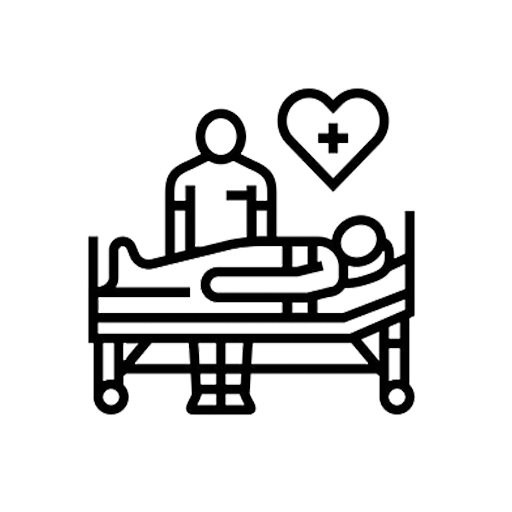General Post Surgery Care at home
It refers to the medical practices and monitoring done after a patient undergoes surgery to ensure proper recovery. It includes pain management, wound care, monitoring for complications like infection or bleeding, and providing guidance on activity restrictions.

Medical Care and Monitoring
Post-surgery medical care involves diligent monitoring of vital signs, incision sites, and overall health to detect any complications early. This includes regular temperature, blood pressure, and oxygen level checks, as well as assessing for signs of infection or adverse reactions. Timely follow-ups with your healthcare provider ensure a smooth recovery process.

Mobility Assistance
Regaining mobility is a critical step after surgery. Proper assistance with walking, using mobility aids, and engaging in light activities as recommended by your doctor can prevent stiffness and improve circulation. Guided movement helps rebuild strength and confidence while minimizing the risk of injury.

Nutrition and Hydration
A balanced diet rich in proteins, vitamins, and minerals is essential for healing. Staying hydrated supports bodily functions and prevents complications like dehydration or constipation. Tailored nutritional plans can aid recovery, enhance energy levels, and promote overall well-being.

Personal Care
Maintaining hygiene during recovery is vital to avoid infections and ensure comfort. Assistance with bathing, dressing, and grooming can make the process easier, especially when mobility is limited. Gentle care also helps patients feel fresh and rejuvenated as they heal.

Emotional and Psychological Support
Surgery can be physically and emotionally taxing. Providing a supportive environment and encouraging open conversations about fears or concerns can help alleviate anxiety. Counseling or support groups can also play a pivotal role in maintaining a positive outlook during recovery.

Post-Operative Therapy
Physical and occupational therapy sessions are often integral to recovery. These therapies help restore movement, strengthen muscles, and regain independence. A customized therapy plan ensures gradual progress while avoiding strain on healing areas.

Communication with Healthcare Providers
Staying in touch with your healthcare team is essential for addressing concerns, updating recovery progress, and adjusting medications or treatment plans. Clear communication ensures personalized care and helps in identifying potential issues promptly.

Preventing Thromboembolism
Post-surgical patients are at risk for blood clots. Measures such as wearing compression stockings, taking prescribed anticoagulants, and performing leg exercises can reduce this risk. Early mobilization and hydration also play crucial roles in preventing thromboembolism.

Wound Care
Proper wound care minimizes infection risks and promotes faster healing. Regular cleaning, dressing changes, and monitoring for redness, swelling, or discharge are crucial. Following your doctor’s instructions ensures the wound heals effectively and minimizes scarring.

Monitoring Bowel and Bladder Function
Post-operative changes can affect bowel and bladder function. Monitoring these functions and addressing issues like constipation or urinary retention promptly is important. A fiber-rich diet, hydration, and, if necessary, medications can help restore normal function.
Guiding your journey to health and a better life
We at Wegomeds revolutionize healthcare with our innovative hybrid approach, reaching remote and medically underserved locations. Our network of world-class Top Notch Health Care Providers powered by an intelligent tech platform and operated by trained and certified health workers delivers quality healthcare services in an assisted mode. Our mission goes beyond more connectivity making quality & reliable healthcare accessible and affordable to all.
The customer health score of Wegomeds Healthcare
Client Satisfaction
On-Time Service
Quick Response Time
TIME TO GET STARTED
